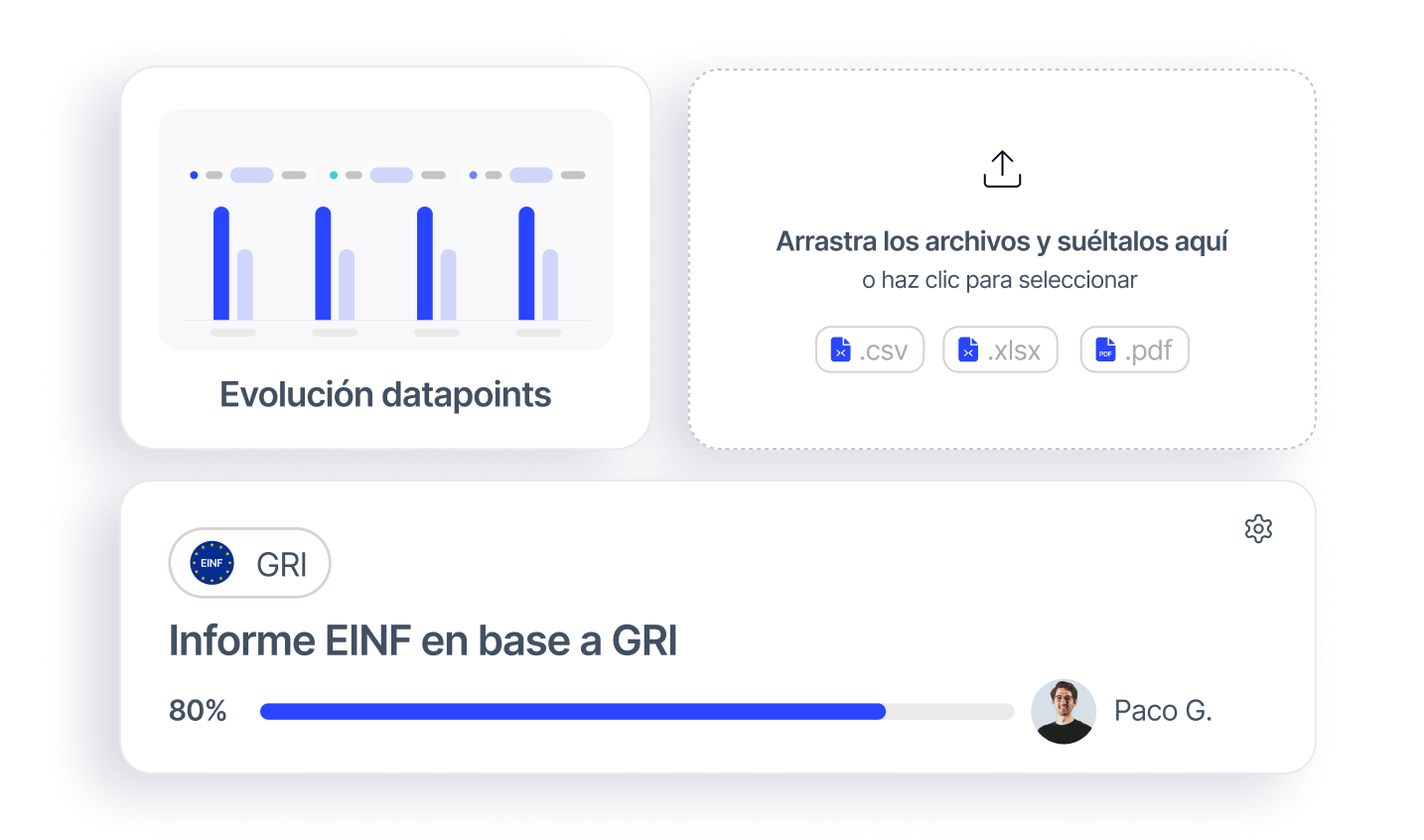Nuevas aclaraciones sobre la CSRD en 2025


La Comisión Europea ha publicado nuevas aclaraciones sobre la CSRD, los ESRS y la SFDR.
¿Dudas sobre la CSRD? Un software CSRD te ofrece claridad, estructura y cumplimiento asegurado
Las grandes empresas (aquellas que cumplan al menos dos de los siguientes criterios: más de 250 empleados, facturación anual de 50 millones de euros o balance superior a 25 millones de euros) tendrán que comunicar datos de sostenibilidad a partir de 2025 (con datos a partir de 2024), mientras que las PYME cotizadas tendrán hasta 2027 (con datos a partir de 2026).
En el caso de que una empresa cambie de categoría, como pasar de mediana a grande, no se le aplicarán automáticamente las obligaciones de la nueva categoría. Para que este cambio sea oficial, debe cumplir con los criterios de la nueva categoría (por ejemplo, ingresos, número de empleados o balance) durante dos años consecutivos.
Las empresas subsidiarias y sucursales de terceros países con operaciones significativas en la UE (ingresos netos de más de 150M€ en la UE durante dos ejercicios seguidos, o que una filial o sucursal genera más de 40M€ en la región) también estarán obligadas a reportar de manera alineada con los ESRS.
Respecto a las empresas subsidiarias, no tienen que reportar su propia información si su matriz ya publica un informe consolidado que cumple con los estándares ESRS (Estándares Europeos de Reporte de Sostenibilidad).
Sin embargo, las grandes empresas cotizadas en mercados regulados, no pueden usar esta exención. Deberán reportar individualmente, incluso si su matriz ya lo hace.
Sobre los informes, se marcan tres requisitos específicos que se deberán cumplir.
Los informes de sostenibilidad serán revisados por auditores o proveedores independientes con formación en sostenibilidad y experiencia mínima de ocho meses. Ojo, en España, según la transposición, tienen que estar inscritos en el ICAC.
Estas revisiones serán cada vez más detalladas y exhaustivas, por lo que sin el apoyo de expertos, existe un mayor riesgo de errores o incumplimiento de la normativa que puede derivar en multas o sanciones.
La transposición de la Directiva (UE) 2022/2464, ya ha cuantificado estas multas y sanciones. Si esto te interesa, lee más aquí.
Los recursos intangibles (como el know-how de los trabajadores, relaciones con clientes, reputación o innovación) no son obligatorios en la declaración de sostenibilidad.
Sin embargo, ahora deben incluirse en el informe de gestión para explicar cómo estos intangibles fortalecen a la empresa y como también contribuyen al crecimiento y sostenibilidad de la misma.
Además de este artículo también hemos preparado un documento que resume todas las aclaraciones más recientes que ha compartido la Comisión Europea.
👉 Quiero más información sobre Aclaraciones de la CSRD.
Sí, en la práctica muchas empresas industriales tienen que responder igual. Clientes y bancos piden datos de cadena de valor, huella y controles.
Puedes no publicar, pero vas a tener que demostrar.
Depende de tu doble materialidad, pero en industria suelen aparecer con frecuencia E1 (clima), E2 (contaminación y sustancias), E5 (circularidad), S1 (seguridad y condiciones laborales), S2 (cadena de valor) y G1 (conducta y controles).
Se estructura como proceso: inventario de IROs por planta y proceso, criterios de evaluación, umbrales, evidencias y decisiones registradas.
Así puedes defender el por qué ante revisión y repetirlo cada año sin reinventarlo.
Lo mínimo viable suele estar ya en tu organización: facturas y contadores de energía, datos EHS, compras y proveedores, RRHH y PRL, y registros de residuos y agua.
Se puede arrancar con un piloto por planta y escalar.
Con un enfoque realista: datos primarios cuando existan, y factores secundarios justificables cuando no.
Con trazabilidad de supuestos, versiones y evidencias por categoría.
